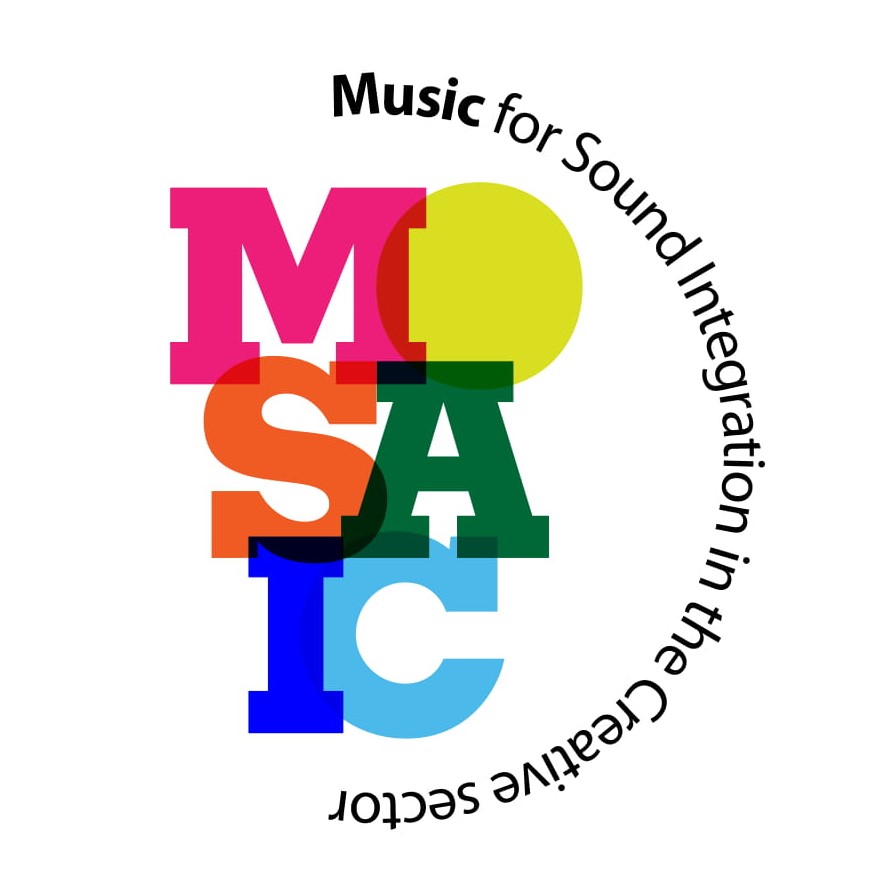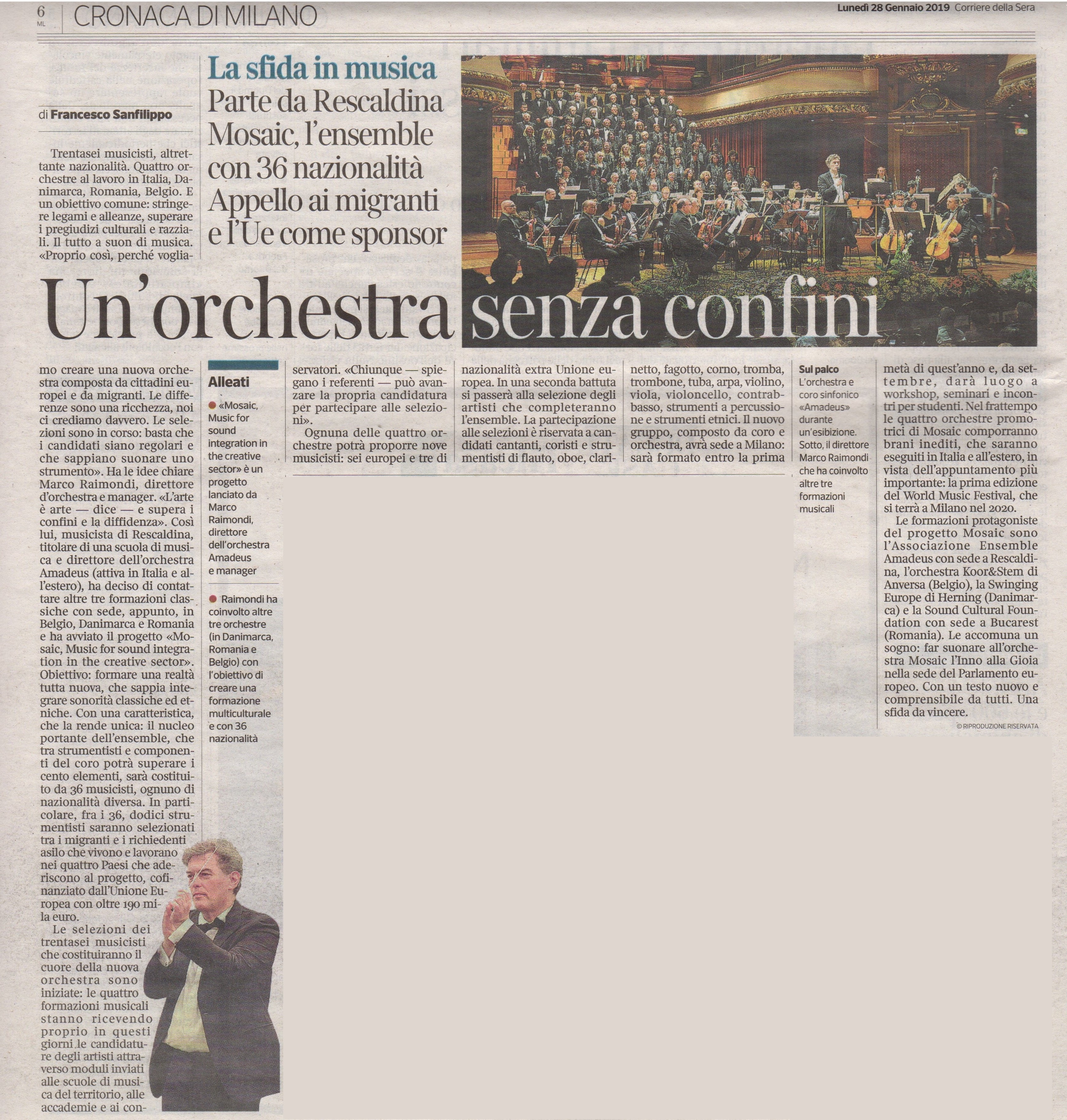MoSaIC
Music for Sound Integration in the Creative sector
Cofunded by European Union (2018-2021)


MoSaIC Project aims to foster the integration of European culture through a musical path of knowledge and collaboration of European musicians, migrants, refugees and asylum seekers that will give everyone the chance to share with the whole community stories, traditions and musical skills. A path of shared growth that aims at exploring various music genres, from classical to modern music, from pop to jazz, from jazz to choral and instrumental music, creating the basis for new sound paths
Music represents the vital core of all project activities. A universal language goes beyond cultural boundaries, and the tool that allows everyone to express their personal and cultural heritage in a context of common European belonging.
The whole community is involved, in particular schools of all levels, in which kids, tomorrow citizens, will be directly engaged in learning the contents a musical language that comes from different human stories, that share the values of a united Europe, of which they’ll be invited to compose the text of the hymn, on the notes of Beethoven.
Educational paths, concerts, didactic laboratories and public events will culminate in the realization of the first edition of the World Music Festival, in Milan in 2020. Here, musicians coming from the entire Europe and from the rest of the world will present life experiences, a melting pot of musical genres, sound contaminations and integration of differences, in an inclusive European cultural scenery.
From a cultural point of view, the project aims at promoting the artistic/creative expression of young European musicians and encourage immigrants in the co-creation and dissemination of musical products and events to the public. Of extreme social relevance is to present to the civil community the image of an immigrant who knows how to integrate in Europe, bringing his own contribution for a common growth. To reflect on one’s traditions and origins, together with an in-dephs study of themes such as discrimination and prejudice towards diversity, will create the premises to realize a new and shared European cultural and musical heritage in which everyone can recognize themselves. Last but not least, from a professional point of view, the project intends to strengthen the abilities of cultural operators, music teachers and artistic directors, in cooperating in a multicultural and transnational context, improving their training and teaching methodologies for young musicians in the field of classical and contemporary music.
MoSaIC involves four partners working actively in promoting music and culture, geographically distributed in order to cover the entire European territory.
- Ensemble Amadeus (Italy), project leader, is a symphonic choir and orchestra made of more than 50 instrumentalist and 70 choristers and has performed over 900 concerts (1999-2018), from baroque to contemporary music.
- Koor&Stem is a non-profit organisation. Its professionals support choirs, orchestras and conductors, promote fresh perspectives on the future of choral life, create learning opportunities and performance prospects.
- Swinging Europe (Denmark) is a non-profit institution that creates and facilitates artistic and cultural projects and activities through art, music and talent development.
- Fundatia Culturala Sound (Romania) is a non-profit entity that aims at promoting the Romanian cultural identity, stimulating creativity within society and use music and arts as tools to increase self-awareness and develop communication skills.

